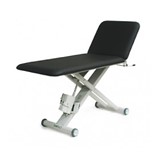Lead author Professor Johanna Westbrook said the study was significant as it suggests that interruptions and multitasking are a major cause of clinical inefficiency and error in Australian hospitals.
Researchers observed 44 doctors working in the emergency department of a 400-bed metropolitan hospital from 8am to 6pm on weekdays between July 2006 and January 2007.
The study showed that 11 per cent of all doctors' tasks were interrupted.
Professor Westbrook said the most unexpected result was that completion time for interrupted tasks was almost half that of uninterrupted tasks.
"It appears that in busy interrupt-driven clinical environments, clinicians reduce the time they spend on clinical tasks if they experience interruptions," she said.
"This may be a case of doctor's attempting to 'catch up' for lost time but could potentially have significant implications for patient safety."
The study is innovative in using new methods for accounting for the fact that some tasks longer and are at greater risk of interruption than shorter tasks. This problem is referred to as length-biased sampling and this is the first study which has taken account of this phenomena to understand the impact of interruptions on doctors' work.
In addition, the study found that physicians failed to return to and complete a staggering 18.5 per cent of interrupted tasks.
Interruptions occurred most frequently during documentation, with 47 per cent of discharge summary documentation tasks and 40 per cent of other documentation tasks interrupted. Direct and indirect care tasks were interrupted at similar rates of 17 and 19 per cent respectively.
While the study does not address the outcomes of tasks, Professor Westbrook suggests that other experimental studies identify that those completing complex tasks with a high frequency of interruptions had a significantly lower accuracy rate.
In a complementary study published last month in the Archives of Internal Medicine, the Health Informatics Research and Evaluation Unit demonstrated that interruptions to hospital nurses significantly increased the rate and severity of medication administration errors.
Acknowledging that interruptions and multitasking are unavoidable and somewhat essential in the hospital environment, Professor Westbrook believes there is still much to be learnt from these results in terms of trying to reduce unnecessary interruptions.
"These two studies demonstrate that the uncontrolled and untrained use of interruptions in clinical practice is an expensive and dangerous strategy, and emphasise the need to develop clinical processes that minimise unnecessary interruption," she said.


